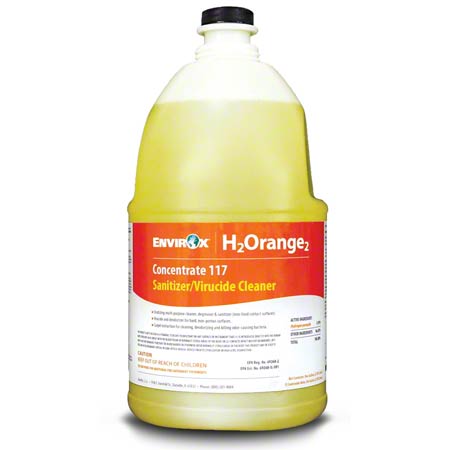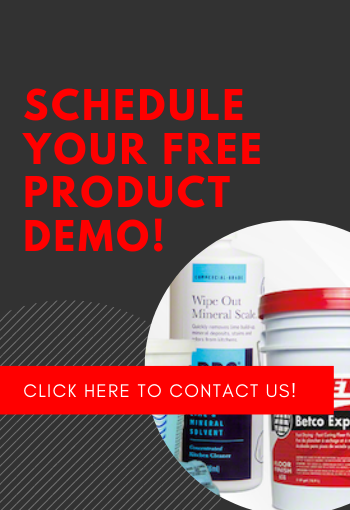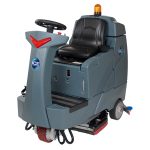“I just cleaned my floors, but they are sticky! What gives?!” We hear this often. The culprit is the same thing that can cause sticky carpets, restroom odors and surfaces that you just cannot seem to keep clean.
The cause? Residue.
To be more specific, residue from cleaning chemicals.
Although cleaning products are supposed to make things cleaner, taking a closer look at conventional cleaning chemistry shows us what residue is and why it can cause sticky floors and other issues.
Understanding Cleaning Chemistry
Most cleaning products contain three main ingredients:
Solvents that cut through dirt.
Surfactants that lower surface tension of water while suspending dirt and allowing for easier wiping away of debris.
Water that acts as a vehicle for dirt and the other components.
Surfactants in many cleaning products leave behind a residue. How much depends on the quantity in the product itself, and if you aren’t using dilution control, the result can be sticky, icky floors.
Residue is also the ideal environment for bio-film to grow and thrive. Bio-film is the result of bacteria that sticks together on a surface, and according to the CDC, bio-film can be far more resistant to antimicrobials than the very same bacteria in suspension.
Residue also captures odors, causing lingering smells that make it seem like a space isn’t clean at all. When the cause of the odor is embedded in a stick film of residue, it becomes very difficult to remove.
Eliminating Residue Issues
 The best way to avoid this problem and banish sticky floors entirely is to use a residue-free or low-residue cleaner. We highly recommend EnvirOx’s hydrogen peroxide products. These solutions react to organic materials, leaving only oxygen and water behind after the completion of the chemical reaction. The result is truly clean, residue-free floors and surfaces!
The best way to avoid this problem and banish sticky floors entirely is to use a residue-free or low-residue cleaner. We highly recommend EnvirOx’s hydrogen peroxide products. These solutions react to organic materials, leaving only oxygen and water behind after the completion of the chemical reaction. The result is truly clean, residue-free floors and surfaces!
If you are using concentrated cleaning chemicals, always use dilution control properly. Concentrated cleaning products are a great way to save money, but you’ll get big residue issues if you are just pouring concentrate without diluting it.
Always follow proper cleaning techniques to cut down on residue. Follow CDC guidelines for disinfection: clean first to remove residue, then disinfect to prevent build-up.
Following these tips and choosing the right cleaning products in Danville can reduce residue and result in cleaner, healthier floors and surfaces throughout your facility!



